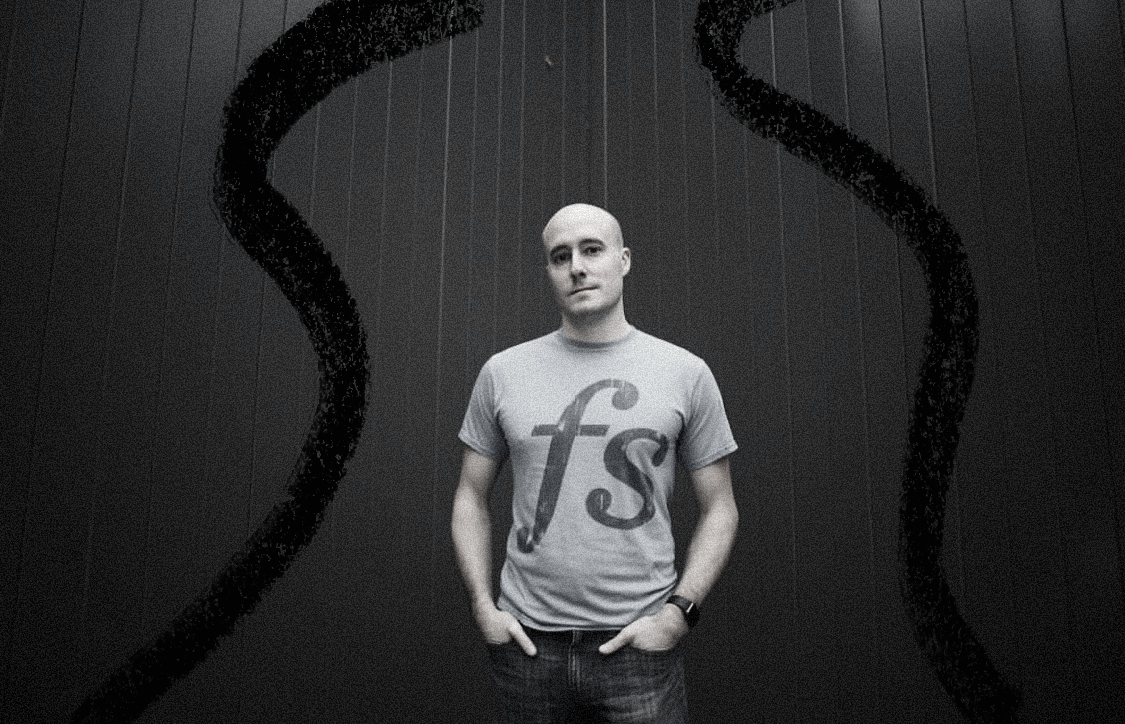
It has sometimes struck me that mental models are bullshit. Maybe not the ideas themselves, but at least how I use them. Yes, maybe the bullshitter (bullshipper?) is me.
It goes something like this: I’ll read about inversion, or compounding, or reciprocity. I will think to myself, Whoa! This piece of information could be useful to me when I am making consequential decisions. I should remember it.
Then, when I am m̶a̶k̶i̶n̶g̶ justifying a decision I’ll reach back into the haziest corners of my memory and think, “Yes, this is a good decision because it will compound!" Then I will make the decision I was probably going to make anyway, just with more confidence.
But the confidence, like a retweeted Beeple, is somehow false. I don’t really *own* the idea. It’s not in my wallet. I don’t know its corners, its edges, or its flaws. I’m just pasting it on top of my decision to make it look like I do. The mental model isn’t actually helping me in any way. It’s just decorating my decision. It helps me impress myself, and other people.
So I decided to figure out what was going on. Why am I like this, and how can I be better?
That’s why I wanted to talk to Shane Parrish. It’s easy to forget, but before Shane came along no one really talked about mental models. He’s the person who made a focus on interdisciplinary knowledge, decision-making, and reading old books a common cause in tech and business. These ideas came out of his mind, and ended up in the water.
Shane is the founder of Farnam Street, the CEO of Syrus Partners, and the host of The Knowledge Project. I’ve been reading his writing since I was in college.
It turns out that Shane is aware that people like me—mental model LARPers—exist. But for Shane, what the LARPers fail to see is that writing “compounding” on a flash card doesn’t do anything for you on its own. Instead, you need to use a mental model over and over again—badly—before you learn how to use it well. “With mental models, you learn to walk by falling down,” he told me.
The way to get rid of the bullshit and the LARPing is to honestly attempt to connect the mental model in your head to the results in the world—if you do this enough, real understanding will start to click into place. In short, just having experiences and using fancy words doesn’t actually teach you anything. You have to reflect on your experiences to generate actual understanding.
This is a process he calls the Learning Loop: having experiences, reflecting on those experiences, and using them to refine your model of the world so that you can do better next time. In this interview we go into detail on Shane’s views on decision-making, learning, and reading as it applies to business. We even take a detailed look into how he takes notes on the books he reads.
But we go further than that.
It struck me during our conversation that this all seems like a lot of work. The question is: why do it at all? Even though I’ve read his writing for years I didn’t feel like I truly understood Shane’s drive. It left me wondering: what makes falling down so often on the way to understanding even worth it to him? I know he cares about his Learning Loop, but what really makes it spin?
That’s where this interview goes. We talk about how Shane wants the people in his life to think about him when he’s gone, and how his kids keep him focused on what matters. We also discuss what he took from his divorce, and why he feels compelled to serve his country.
He has a cool and logical exterior. But by the end of the interview it became clear to me, underneath the mental models is this: Shane Parrish has heart.
Shane introduces himself
My name is Shane Parrish, and I started a blog called Farnam Street, a podcast called The Knowledge Project, and Brain Food, a weekly newsletter. I’ve also written a series of books called The Great Mental Models.
My goal with Farnam Street is to help you master the best of what other people have already figured out, and use that to make incremental improvements in your life that compound over time. That’s everything from learning how to make better decisions, to using mental models.
How We Learn: The Learning Loop
We tend to think that we learn through having an experience but that’s not how we learn at all. We learn by reflecting on an experience.
It works in a cycle that I call the ‘learning loop’. Think about a clock: at twelve o’clock on the dial, you have an experience. At three o’clock, you reflect upon that experience. At six, that reflection creates an abstraction—a mental model—and at nine, you go on to take action based on that. Draw little arrows between them, and you can visualize this loop of learning.
Experiences come in all shapes and sizes. They can come from the result of our actions. They can also come from a conversation, reading a book, or watching a movie.
Most of the time we skip the reflection part. We just want to get to the point. We want the answer so we gloss over the experience and the reflection to get to the abstraction, which answers the question what should we do.
The internet is full of clickbaity lists of other people’s abstractions and mental models presented as some kind of playbook for how to think and do things.
The problem is that those lists leave out the experiences, nuances, and reflections that the writer used to arrive at those abstractions. Often you find the writer is abstracting other abstractions and they don’t have any experience in what they’re talking about.
You can consume someone else’s abstractions all day long, but it doesn’t mean much unless you understand how they arrived at the conclusions.. In other words, you need to go out into the world and do things you can reflect on in order to truly learn and create your own mental models. If you’re talking to someone else, you need to ask them detailed questions. What was their experience? What variables do they think matter? How do those variables interact over time? What do they know that most other people don’t?
For your experiences, I recommend writing them down. And by the way, trying to explain something in writing is a powerful way to approach learning. Writing can teach us to reflect—it slows us down, shows us what we don’t understand, and makes us aware of the gaps in our knowledge.
Learning from Mental Models
To explain how mental models work, my friend Tim Urban talks about the difference between a chef and a line cook. A line cook is someone who has learned a small set of abstractions—they’ve learned a few of the chef’s recipes. But if something goes wrong, all they have to fall back on is the recipe. They don’t know what happened or why.
The chef, however, is the one who has internalized all the rules, the nuances, and who can figure things out when something goes wrong—the chef knows how the system works.
And how does a line cook become a chef? They work on the line, trying to make things work. And they fail over and over again. Of course, they can’t always just follow the recipe. They have to try new things, reflect on those experiences, and learn.
Often we get our information from people who are just giving out the recipes. Sometimes the people handing out the recipes haven’t even tried it themselves. When I’m learning, I don’t want the middleman. I want to go direct to the source. I want the details and the stories and the nuances—I want to see how you reflected on your experiences, so when I take away your abstractions, I’ll see just how to put them into practice.
With mental models, you learn to walk by falling down. You can learn the lessons, but you can't be taught how to put them into practice. In order to do that, you take those lessons and go out and over-fit them—try to apply them to as many situations as you can, and that will give you tons of practice with their limitations. But by doing that, you’ll gather all the information you need in your own reflections to start creating your very own abstractions.
How I take notes when I read: the Blank Sheet
I had a strange realization in 2012 or ‘13. When I looked back on the last twelve months, I realized that I had read a hundred-plus books that year—but I didn't remember anything.
I was reading just to read. By the end of the year, I had even found myself picking shorter and easier books, because I just wanted to get through them.
I decided that I needed a better system, a system where I could learn from what I was reading. So, after a lot of trial and error, I came up with a process which I call ‘the blank sheet’.
Before you start reading a new book, take out a blank sheet of paper. Write down the basic scaffolding of everything that you already know about the book or its subject—make a rough mind map, if you will. Then you read a chapter or two.
An important point: if you don't know anything at all about what the book is about, you can start reading with a completely blank sheet. Maybe it's the first book you've ever read on this person or subject, so you’ll begin by borrowing the author’s scaffolding.
When you're finished with that first reading session, the second step is to take a few minutes to add the new things you’ve just learned to that sheet of paper, but with a different colored pen this time—so you can tell the difference between your old knowledge and new. Then fold your sheet up and put it inside the book.
Before you start your next reading session, pull out the sheet and review it. After some more reading, you add to the sheet, until you’re finished with the book.
You end up with a sheet of paper for every book you read. Say you read thirty books a year, and you do that for ten years. You’ll end up with three hundred of these sheets.
Why the Blank Sheet method works
The first reason this works so well is that it primes your brain for what you're about to read. You begin by searching your memory to write out what you think you know about a subject.
The second is that it reinforces that you're learning and connects to what you already know– you're seeing different colors on the page as you add to your existing knowledge. You started out with your own scaffolding of knowledge, and now you're adding to it. Sometimes you’ll erase what you think you know that just isn’t so.
Third, it gives you an easy-to-read sheet that you can save for future reference.
So what do I do with all those sheets?
I keep them all in a binder—in fact I have a bunch of binders at this point—and every six months or so I’ll take an afternoon and go through them all. It could be on a day when I'm just trying to think, or when I'm stuck writing something and I want to take my mind off of it.
Not only will periodically reviewing your sheets give you a deep fluency in the ideas they contain, and help you keep all of that information at the top of your mind—it will give you the advantage of repetition to reinforce everything you’ve learned across all your reading.
Best of all, though, it will help you connect ideas across domains, and you’ll see things that others don’t. You’ll be able to make connections between ideas that never occurred to you before.
The Blank Sheet in action
Here’s a sheet I made when I was reading a new book by Jeff Immelt—someone whom I was preparing to interview for The Knowledge Project. This is how I did my research.
You can see by looking at the blue writing at the center of the sheet that basically all I knew about him before I read his book was that he took over from Jack Welch as CEO of General Electric in 2001—that was it.
I also knew that if I was going to talk to the CEO of a company with 300,000 employees, I’d want to talk about leadership and negotiation. So those are two bubbles I added to the sheet before I started reading.
As I read each chapter, I added to my sheet to flesh out my mind map about topics I’d anticipated, as well as new ones that arose in my reading. My first purpose was to prepare to do the best interview possible. But at the same time, I want to create myself a mental repository of ways to approach things that might come up in my own life.
I want to touch on the actual experiences that Jeff had, so I can come to a deeper and more practical understanding of how he reached the abstractions he formed during his own learning process.
When people ask why my interviews for The Knowledge Project Podcast feel so different, it’s because I’m often asking reflecting questions. I don’t want the answer. I want your experiences. I want you to tell me how you thought about it. Tell me what you learned. Let me see the world through your eyes. Let me smell what you smelled. Let me understand. That doesn’t mean I agree with my guests, it just means I want to see the world through their eyes.
How I approach decision-making
I keep a decision journal as a way to really calibrate how I make my decisions. I advocate them for everyone. It’s a way of approaching decision-making with foresight, that allows me to be incredibly honest and vulnerable with myself.
Decision journals help you … reflect. And reflection is the key to learning.
Here’s what you do. You make a decision about something, and you write it down—in your own writing, not on a computer—along with all the reasons why you’ve made it.
You try to keep track of the problem you’re trying to solve for and its context, what you expect to happen and why, and the possible complications. It’s also important to keep track of the time of day that you’re making the decision, and how you’re feeling.
Then you sleep on it. Don’t tell anyone. Just sleep on it.
When you wake up fresh in the morning, you go back to the journal, read what you were thinking, and see how you feel about what you decided.
What you’re doing is slowing down. You’re not implementing your decisions immediately, based solely on intuition or instinct—you’re giving yourself that night of sleep to dampen the emotions around certain aspects of the decision, and perhaps to heighten others. You’ll be able to filter what’s important from what isn’t so much more effectively.
You’re checking in with your head and your heart.
You’ll see if you’re still comfortable with the decision, what you thought about it and how you thought about it. If you can delay implementing your decision for a day or two, even better, because you’ll live the decision. You’ll start interpreting information through the lens of having already made it—even if you haven’t communicated it to anyone yet.
I do this individually, just for me. But we also use journals to keep track of big decisions we might make about projects at Farnam Street. That way, we can go back and figure out what our thinking was at any given point—what we got right, and what we might have missed. We can begin to calibrate our judgment.
I book meetings with myself, and keep track of all to-dos in my calendar
When it comes to planning my day, my goal is not to have so many to-dos that I have to keep track of them! Most of us are just over-programmed. We're unbelievably busy from trying to take a hundred balls and keep them all in the air instead of just taking one or two balls and moving them forward.
I try to choose one thing that I want to move forward on any given day – that's it. I’ll write it down the night before, or even the morning of. Then I use time I’ve carved out to work on that one thing.
In order to do that, I make sure that I have no meetings any day before noon—I keep every morning, with very few exceptions, blank. When I worked for a large company, I got into the habit of booking meetings with myself—time that no one could take over, that was just for me to really get work done. At first, it was 8:30 to 9. Gradually it went from 8:30 to 9:30, and then it went from 8:30 to 10:30.
Now, of course, I have a million things to do—I have to schedule kids’ dental appointments. I have to change the tires on the car. I have to pick up groceries and school supplies. I have to call somebody to repair the roof. I have to change the oil in my car. I schedule all of that stuff in my calendar once it comes up, so I don't have to keep track of it.
If I make sure to put all of my to-dos into my calendar, it gives me a chance to realize when I’m overbooked. I can see it there, physically, right in front of me on the screen—it’s very important to me that I get a physical reminder that there’s a cost to everything I take on.
If you find yourself saying yes too much, create a rule for yourself that everytime you say yes you’ll book it in your calendar. And when you book it, make it for twice as long as you think. If you think it will take you an hour, book two. But actually put it in your calendar. Within a few weeks, you’ll start saying no.
I try to give my best time to the people I love. Of all the things I’ve taken on in my life, there is absolutely nothing more important to me than my kids.
When my ex-wife and I were together, I was working twelve hours a day, six days a week. I loved the job, but I’ve realized that I was going home at night and giving the worst part of my day to the most important person in my life. Hopefully you can catch yourself if you’re making that same mistake—it was a huge contributor to why we ended up getting divorced. Hopefully my hindsight can become your foresight.
So now when it comes to my kids—they're 10 and 11—I try to make it so I’m giving them the best part of my day. There is nothing more important to me than spending time with them: going for a walk, taking them skiing, playing hooky from school, watching movies, playing video games, travel and exploring the world. One day they won’t want to spend as much time with me, and that’s ok. I just want to be here now in the moment when they do and give them my best.
How do I make sure to do that? I don't rely on willpower, because I think that’s a flawed way to approach this. I use systems to accomplish my goal—I structure my day by scheduling things in my calendar and making sure that the path of least resistance is the path that helps me to achieve my goal of putting my kids first.
I have a responsibility to my country and beyond
I'm a very lucky person. I didn't choose to be born to parents who cared about me, and who had the means to take care of me. I didn't make a choice to grow up in a country that had health care, education, infrastructure, freedom of speech. That was all luck.
As it happened, my parents were in the armed forces, and they instilled in me the idea that luck comes with a responsibility—and that is to give back.
Now, anybody that knows me knows that I'm not going to grab a gun and go to the front lines—it's safer for everyone if that just doesn't ever happen! But what I can do is use my brain, so I went to work for an intelligence agency and worked in computer security for fifteen years.
The sense of responsibility that I believe in is not just a responsibility to your country—it’s to your family, your community, your city, your state, your country, the whole globe. We have a responsibility to make the world a better place, and to give back—not only to the planet, but to each other.
I try to live life backwards
Things I aspire to, like ‘I want to be successful at work’, I think of as ‘sub-goals’. But my big-picture goals are to help people be the best version of themselves and help my community. I want to be a great friend and an amazing father and a good son. I want to take care of everybody in my life to the best of my ability.
In order to meet those goals, I try to think about living life backwards.
Try this experiment right now: close your eyes and picture yourself at 90. You've accomplished all of your dreams and goals, but you’re on your deathbed, and you’re about to die.
Think about what people are going to say about you, and what your regrets are. Then think: what matters to you right now?
Well, it doesn't matter if you have some extra zeros in your bank account. It doesn't matter if you got that big promotion. It doesn't matter that you were super powerful and you ran a big company. None of that matters—you're not going to be thinking about any of that stuff.
What matters is: who's around you? What do people say about you? You’ll be asking yourself, “was I there for people?” Were they there for me? Did I build long-term, sustainable relationships, or did I take advantage of people? Did I live a meaningful life or do I want a do-over?
About me, I want people to say, ‘He was a good person. He went out of his way to make sure that I was always getting more out of our relationship than he was. He went out of his way to help me when I needed it. He was there when…”
I'm super fortunate to be in a place of privilege—I'm not worried about putting food on the table today. But I am trying to think about how to live my best life so that when I do die—whether that's today, tomorrow, or in fifty years—I’ll feel comfortable with all of my choices and all of my actions.
I think it’s so important to live your life in a way that’s in harmony with how you want it to end.
You only get one life—you can't fuck this up!
The Only Subscription
You Need to
Stay at the
Edge of AI
The essential toolkit for those shaping the future
"This might be the best value you
can get from an AI subscription."
- Jay S.
Join 100,000+ leaders, builders, and innovators

Email address
Already have an account? Sign in
What is included in a subscription?
Daily insights from AI pioneers + early access to powerful AI tools
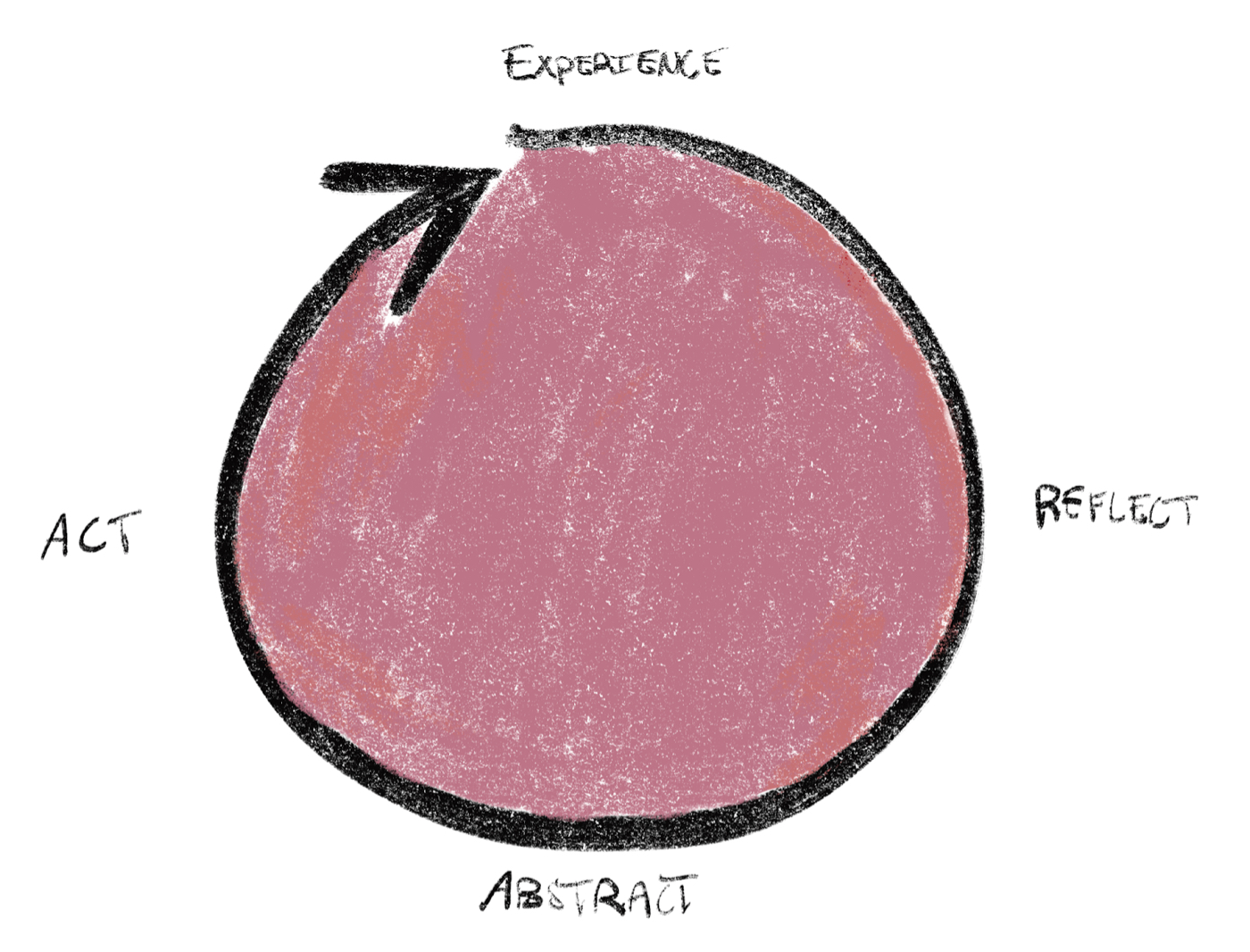
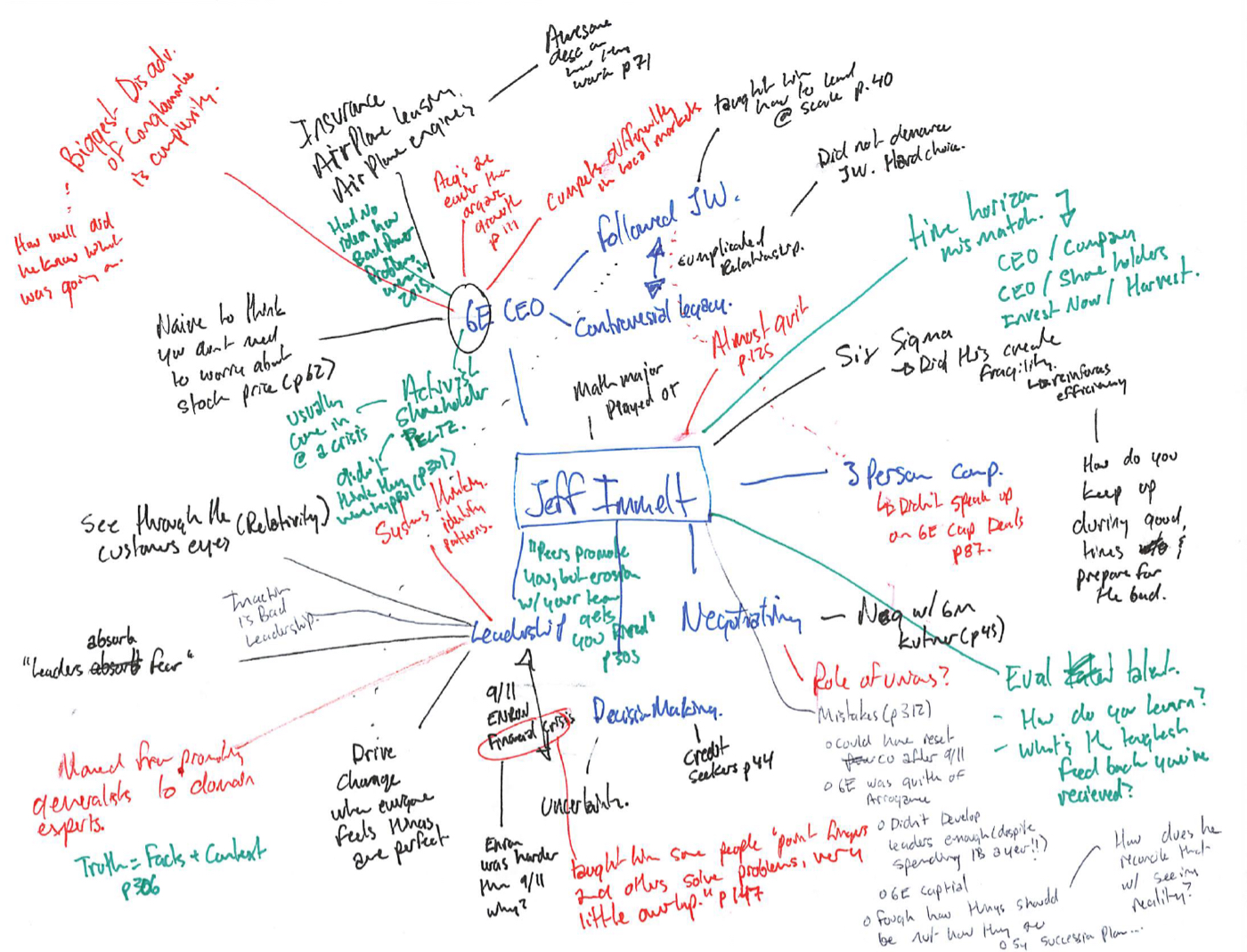






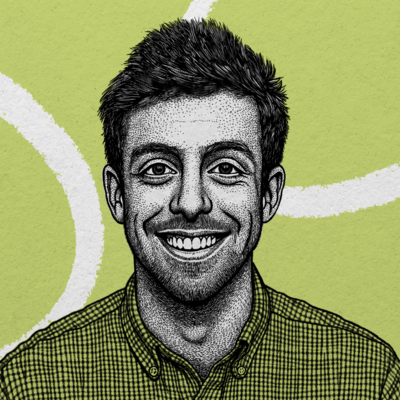
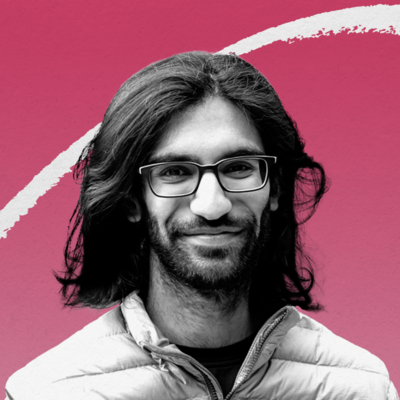
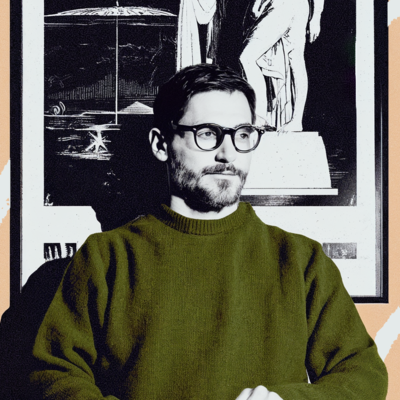

Comments
Don't have an account? Sign up!
This was unbelievable. I really felt what he said & how he said it.
Somehow, it was way less dry than his newsletter. I've been a subbed for years, but this post re-energized my view & respect of him.